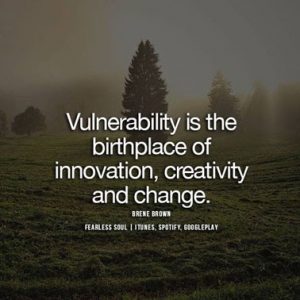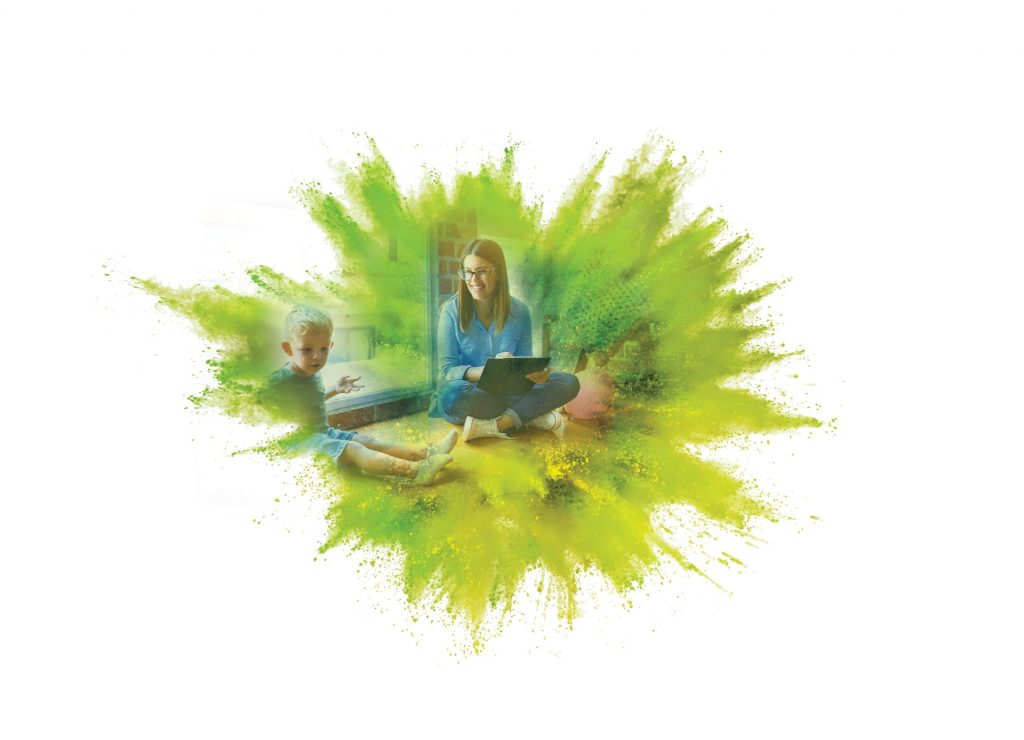As we continue to walk through some of my core parenting practices, I’d like to spend this week talking about shame and vulnerability.
Years ago, I was introduced to Brene Brown, a shame researcher, through her book, “The Gifts of Imperfections.” Since then, I frequently refer to Brene as my spirit animal and one of my soul sisters. I highly recommend her work!
Brene, of course, can tell you more than I can about this shame and vulnerability, but I’d like to give my take on how it impacts how I parent (and impacts being a partner to my husband) every single day. Brene teaches how shame is our barrier to wholehearted living. Vulnerability, in turn, is the birthplace of joy. Now, I understand there is a lot in just those two sentences, but they mean the world to me and we’ll unpack them together.
Working with Shame
Let’s start with shame. Brene defines shame as “the intensely painful feeling or experience of believing that we are flawed and therefore unworthy of love and belonging – something we’ve experienced, done, or failed to do makes us unworthy of connection.” Wow.
How many of us struggle with this? I know first hand I struggle with this every single day. Just last night I was celebrating with my sister, making enough breast milk, down to the ounce, to feed Declan for a year because she had donated milk which (we’re now using to wean). She responded, “that’s great! You were a just-enougher.” I responded she had just defined my entire childhood!
I can’t remember a time that what I did was enough. So, of course, I struggled with love and belonging. I don’t fault my parents, they were doing their best at the time. I think we all experienced this to some extent because our parents didn’t know that their standards or their own judgments for us were creating shame.
In women, we usually associate shame in our body image with being, “good.” While men struggle with being a “man,” (whatever that is….) and beind “the great Oz, fixer of all.” Or so Brene tells me. I absolutely REFUSE to use shame in my home.
What this looks like for me with my children at their age is that I do not put them down for their mistakes, ever. A core family rule is no name-calling. We talk about the action, not the person when a mistake is made. For example, if Henry drops a dozen eggs I don’t say things like, “Look at what you’ve done!” instead I say, “Henry we need to be more careful, Mommy & Daddy paid for those eggs let’s clean it up.” The first sentence is a shame sentence. The second is a teaching sentence using guilt. Per Brene, guilt is a valuable way to teach us how our actions affect others while not telling us we’re bad or wrong. To build on this, if anyone is in a bad mood in our house (trust me this happens…) we excuse ourselves BEFORE we use shame language. On a daily basis, this is an active practice. I’m a human with three young boys, two dogs, and a husband. Sometimes I can lose my temper. But I’m not teaching anyone in my house that they are not enough. They know if I’ve lost my temper it’s on me, not them. That is a powerful lesson.
Working with Vulnerability
OK, so now that we understand shame a bit let’s talk about vulnerability. Vulnerability is the birthplace of joy and belonging. This is the peanut butter to the jelly of shame. About a month ago, I asked my husband (who as I’ve mentioned is Bulgarian) if he knew what vulnerability was. There was some laughing, confusion, and then agreement to watch Brene’s special on Netflix.
As a man, vulnerability was a new concept to my husband. I think men in Bulgaria hear the phrase “be a man,” at about 10x the rate men hear it in the US. This is unfortunate in both cases. I am well aware that I am raising little men and I do not want vulnerability to be a new concept to them as adults.
Vulnerability, per Brene, is, “uncertainty, risk, and emotional exposure. But vulnerability is not weakness; it’s our most accurate measure of courage.” This is a big concept for an adult, let alone my little men (now eleven months, 2 ½ and our newest addition at 14). What vulnerability means for me and my littles is not using shame when my children show their emotions. I encourage them to fail versus doing everything for them. We applaud all attempts at courage.
With Declan, this is pretty non-existent right now (he’s too little). With Henry this looks like me sitting back as he tries new things (a lot of gross motor skills right now…) and when he fails I praise his effort. It also looks like me modeling his emotions and what he can do to calm down. If he’s pissed, if he’s been dumped by his dump truck stool (OK this happens like every day…) I say, “I’m mad!” then we practice breathing. I’ve done this since he was 18 months old. And you know what? This weekend Henry got mad and came running to me saying, “Let’s make sounds!” He then proceeded to do deep breaths on his own. How freakin’ cool!
For Dametrius, I’m sure the journey to unpeeling shame and living with an openness to vulnerability will be longer. It’s my hope he walks this path with my husband Martin. I’ve only started to lay the foundation Dametrius. When he moved in, we talked about failure. I told him I never want to see him pass on an opportunity because he’s afraid to fail. That so long as he tries he’s won.
Living with Shame and Vulnerability Every Day
Living with a house full of men, I do not want them to hide behind the label and expectations of “man.” I want my men to be loved fully for who they are; emotions, mistakes, failures, and triumphs. I know they love me the same way and together we belong to each other. Should I ever have a daughter, I will want the same for her. And in 20+ years, when my children succeed as adults, they won’t snicker to each other that they’re “good-enoughers.” They will know they always have been, and always will be, enough.
Xoxo,
Jessie


